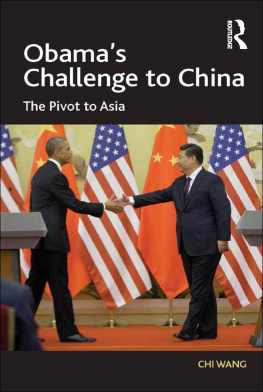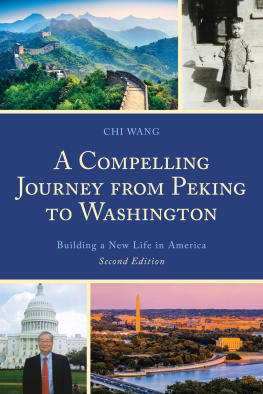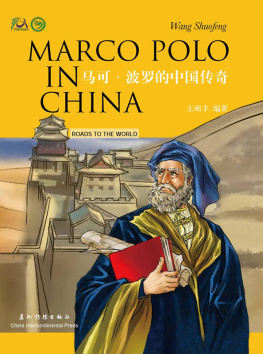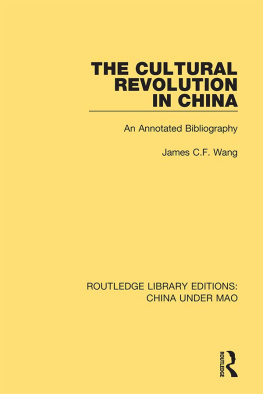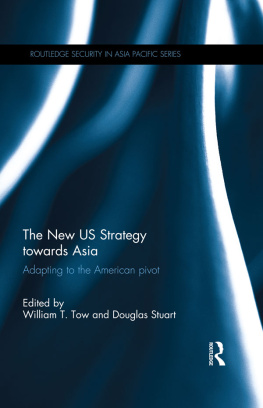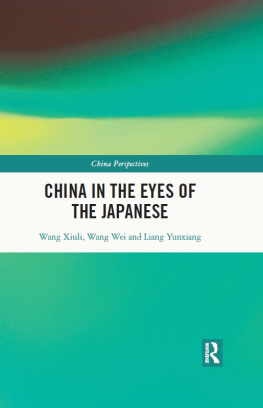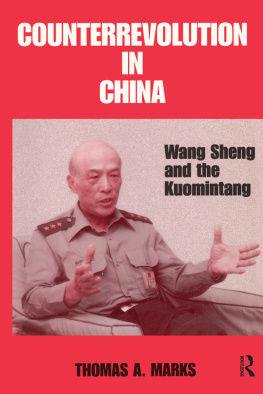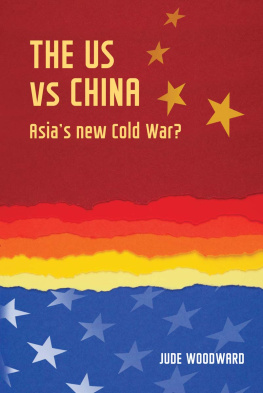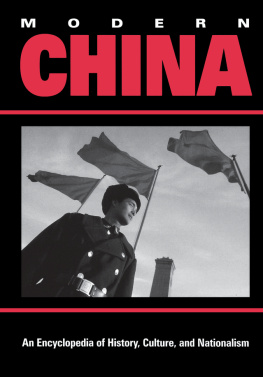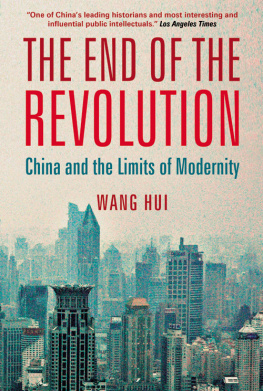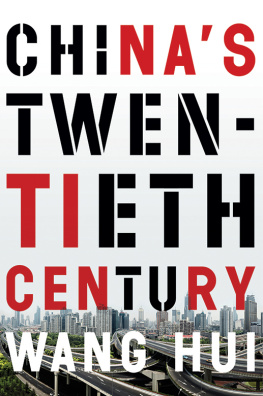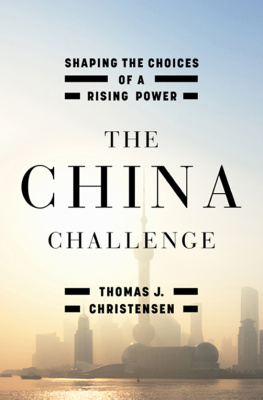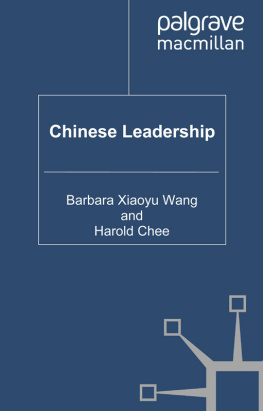OBAMAS CHALLENGE TO CHINA
Obamas Challenge to China
The Pivot to Asia
CHI WANG
First published 2015 by Ashgate Publishing
Published 2016 by Routledge
2 Park Square, Milton Park, Abingdon, Oxon OX14 4RN
711 Third Avenue, New York, NY 10017, USA
Routledge is an imprint of the Taylor & Francis Group, an informa business
Copyright Chi Wang 2015
Chi Wang has asserted his right under the Copyright, Designs and Patents Act, 1988, to be identified as the author of this work.
All rights reserved. No part of this book may be reprinted or reproduced or utilised in any form or by any electronic, mechanical, or other means, now known or hereafter invented, including photocopying and recording, or in any information storage or retrieval system, without permission in writing from the publishers.
Notice:
Product or corporate names may be trademarks or registered trademarks, and are used only for identification and explanation without intent to infringe.
British Library Cataloguing in Publication Data
A catalogue record for this book is available from the British Library
The Library of Congress has cataloged the printed edition as follows:
Wang, Chi, 1932
Obamas challenge to China : the pivot to Asia / by Chi Wang.
pages cm. (Rethinking Asia and international relations)
Includes bibliographical references and index.
ISBN 978-1-4724-4442-4 (hardback : alk. paper) ISBN 978-1-3155-9865-9 (ebook) ISBN 978-1-3170-8637-6 (epub) 1. United StatesForeign relationsChina. 2. ChinaForeign relationsUnited States. 3. United StatesForeign relations2009 4. Obama, Barack. I. Title.
E183.8.C5W34135 2015
327.73051dc23
2014042317
ISBN 9781472444424 (hbk)
ISBN 9781315598659 (ebk-PDF)
ISBN 9781317086376 (ebk-ePUB)
Contents
Acknowledgements
As with any manuscript, many people besides the author put a lot of time and effort into this project, both on and off the record. Thank you to the many colleagues, scholars, and researchers who provided inspiration, comments, or perspective on Obamas approach to US-China relations.
First, I would like to thank my research assistant, Shannon Tiezzi. She worked closely with me on this project for years, from the beginning to the final stages of publication. She played a most important role in this project, from tracking down sources to translating my thoughts into a polished manuscript. Without her participation, this book would not exist.
Im also grateful to the many top-notch Chinese scholars and researchers who sat for interviews for this project. Without their cooperation and insights, I could not have so thoroughly included the Chinese perspective. This book would have been sorely lacking without their help. My thanks to Ambassador Chen Yonglong; Dr. Yang Jiemian of the Shanghai Institutes for International Studies; Teng Jianqun and the researchers at CIISs Department for American Studies; Dr. Huang Ping of CASS; Professor Shen Dingli of Fudan University; Professor Jin Canrong of Renmin University; and the staff and researchers of CIISS. Special thanks to the staff at the Chinese Peoples Institute of Foreign Affairs for helping to coordinate interviews.
I benefited greatly from the input and insights of my long-time friends Ambassador Chas Freeman and Ambassador Richard Solomon. Their comments on the manuscript draft greatly improved the final product. I also appreciated the perspective of other friends, including Ambassador James Keith and Dr. David M. Lampton, of Johns Hopkins SAIS, who gladly shared their thoughts on the US-China relationship.
Finally, I would like to thank the editorial staff at Ashgate, especially Kirstin Howgate, Brenda Sharp, and Tricia Craggs, and US-China Policy Foundation staff members Ariane Rosen and Amanda Conklin for their help preparing the final manuscript for publication.
Introduction
How America deals with China over the next decade will have enormous implications. The US has been the worlds sole superpower for over 20 years, ever since the collapse of the Soviet Union. Now Washingtons moment alone in the sun is drawing to an end, and China is the most important of the new group of developing powers seeking more say in global events. Together, the US and China are the worlds number one and two economies (with their positions likely to flip-flop sometime this decade) and the two countries with the largest military budgets in the world. If growing distrust between the two nations is not checked, the US and China could fall into a pattern of confrontation, competition, and hostility, starting another Cold War-esque period. Alternatively, if America and China can forge a path of general cooperation, butting heads occasionally but never too seriously, the world will benefit.
Now is the time to determine what path the relationship will take in the future, as US-China relations are at a crossroads. Chinas rise, more rapid than even Chinese officials had anticipated, has drastically altered the way China and America interact. China has become more assertive of its core interests but has been slow to adopt what America views as its international obligations. Meanwhile, Americas vulnerability after the financial crisis, coupled with the specter of an ambitious China, has made US policymakers eager to stake out Americas position vis--vis China. US-China relations are entering a new historical phase, and neither country is quite sure how to handle the changing relationship.
Scholars are also split on how to interpret US-China relations. Some in the realist camp, including international relations theorist John Mearsheimer, believe that confrontation or even conflict between China and the US is inevitable.
Under this theory, the China-US relationship has soured over the past years not because of any policy failings, but because of the inevitable tensions arising between two major powers with very different ideologies and security visions. According to the Thucydidean trap theory, ambition on Chinas part and fear (or at least insecurity) from America will lead the two countries down a road toward conflict. In more modern terms, distrust between the US and China has caused a security dilemma, wherein each side takes steps to bolster its position (especially its military forces) and thereby sparks increased fear in its rival. Both sides see their strategic moves as defensive, and their rivals as threatening.
There is certainly evidence that the US-China relationship is caught in such a security dilemma. Nearly every American scholar starts with the assumption that the US alliance network in the Asia-Pacific is crucial for regional stability, and therefore that an increased US presence and involvement in the region will result in more stability. The US believes it must act as a counterweight to perceived Chinese aggression in order to prevent conflict. China, meanwhile, begins from the assumption that the US alliance system is an outdated relic of the Cold War, and inherently harmful to regional stability. Chinese scholars argue that an increased US presence is only encouraging provocations from third parties, and that Chinas military build-up is a defensive move in response to Americas own actions in the region.
However, while the relationship certainly has taken on realist attributes, its a mistake to read realist theory as creating an inescapable roadmap for the future. Both US and Chinese scholars are well aware of the theories that would argue they are doomed to endure a security dilemma at best and an outright conflict at worse. Leaders on both sides consistently express a desire to avoid the historical patterns of a rising power clashing with an established power, a desire summed up in the call for a new model of cooperation or a new model of major country relationship.


